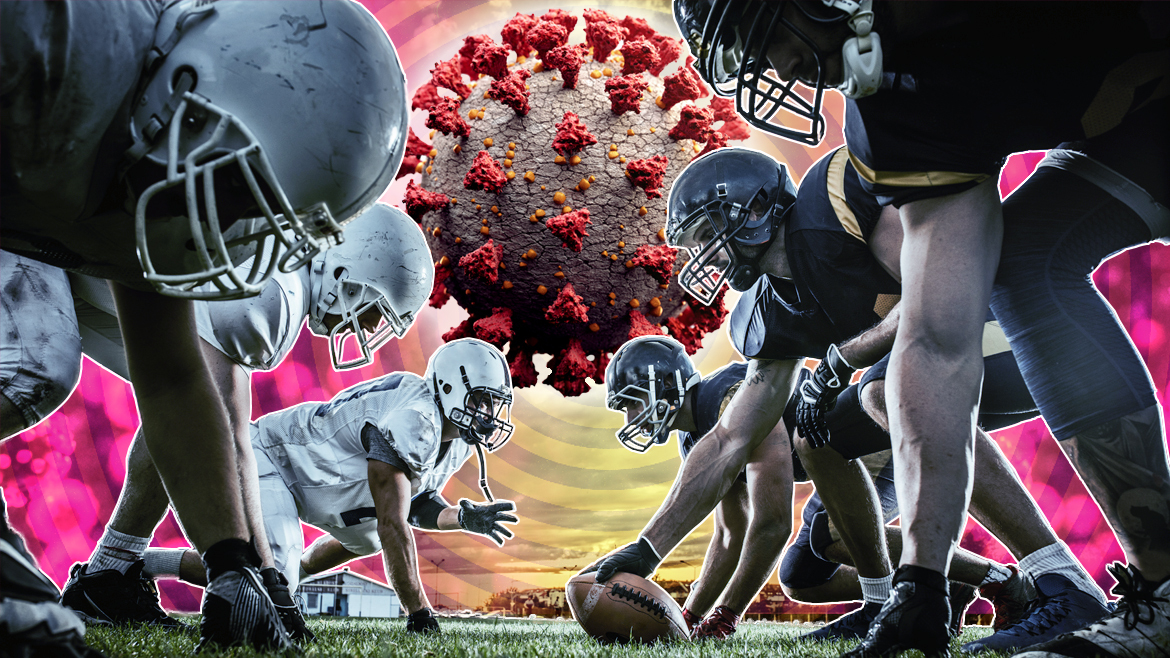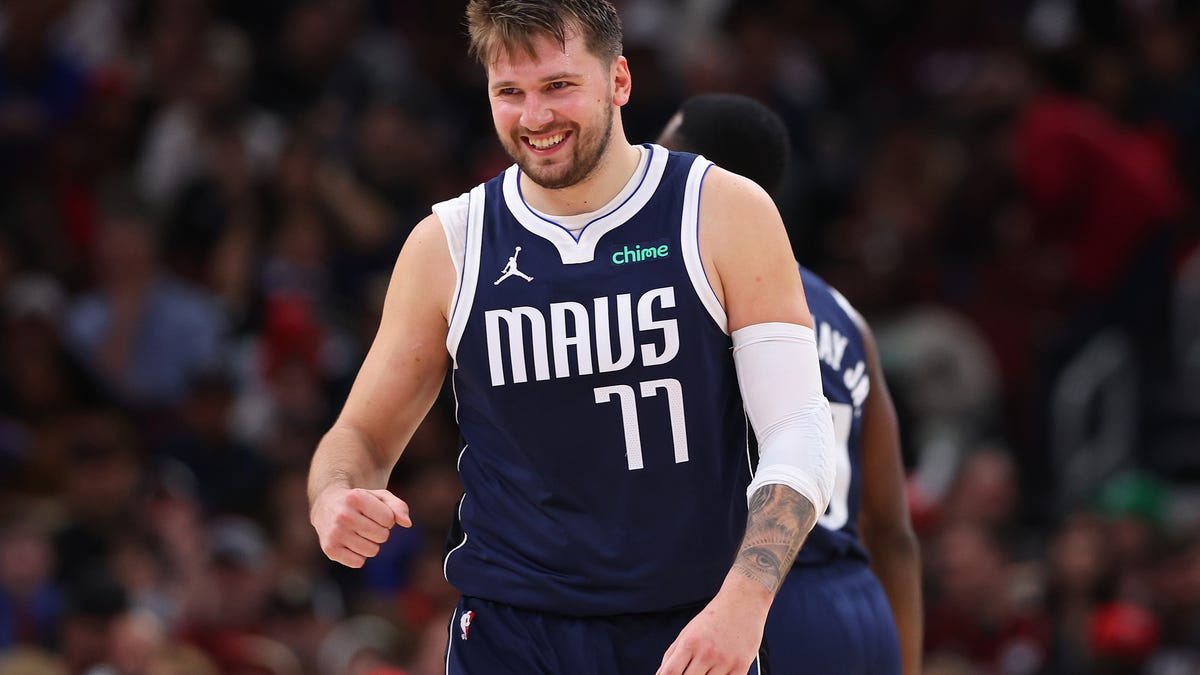“The 360” shows you diverse perspectives on the day’s top stories and debates.
What’s happening
America’s professional sports leagues, which maintained a certain level of normalcy for much of the past year, are once again being thrown into chaos by a fresh wave of coronavirus outbreaks among players and team staff.
The three major U.S. leagues that are currently in season — the NFL, NBA and NHL — have each dealt with a dramatic increase in positive cases driven by the Omicron variant, which appears to be significantly more contagious than previous strains and more likely to cause breakthrough infections in those who have been vaccinated.
Over the past few weeks, all three professional leagues have had to navigate around the reality that a growing list of for COVID-19, including some of the in their respective sports. That’s led to matchups featuring rosters filled with little-known , and — in the NHL’s case — over the holidays. Similar issues have afflicted and some of Europe’s highest-profile .
The leagues have adjusted their protocols in response to this new spike in infections. In some cases, that has meant stricter rules for some mitigation measures like masks and vaccination requirements for team staff. In others, it has meant less stringent policies. The NFL, for example, will vaccinated players who aren’t experiencing symptoms to undergo regular testing. The , , and have all also reduced the amount of time a COVID-positive player must quarantine before being allowed to return to competition.
Why there’s debate
Unlike during the initial coronavirus wave in March 2020, none of the leagues appear to be considering a full shutdown in response to the Omicron surge. “This virus will not be eradicated, and we’re going to have to learn to live with it,” NBA commissioner said during an interview on ESPN last week. A number of public health experts agree with Silver’s assessment. They argue that professional athletes — who are younger, healthier and have significantly higher vaccination rates than the general public — don’t face enough risk from the virus to warrant aggressive mitigation rules that could end up suspending play entirely.
Several players and coaches have even made the case that the leagues are still being overly cautious, particularly when it comes to vaccinated players with mild or asymptomatic COVID cases. “If you’re asymptomatic, you should be allowed to play,” Tampa Bay Buccaneers coach told reporters earlier this month. The only way to live with COVID in the long term, some pundits argue, is to accept low-risk cases as a part of everyday life.
But critics have accused the leagues of putting profits over safety by creating policies designed to limit disruptions caused by COVID cases, rather than by preventing the cases in the first place. They argue that the only responsible approach is to ramp up testing and mitigation procedures, even if that means more players have to sit out or more games are canceled. Others make the point that, though the players themselves may face little risk, they can still serve as vectors and transmit the virus to vulnerable people in the cities they live and travel to. A minority say leagues should acknowledge that there’s no way to keep the virus at bay while still continuing their seasons and should shut down again until things have gotten more under control.
What’s next
While every league has a lot at stake in managing the Omicron wave, COVID-related disruptions in the coming weeks could be . The league’s playoffs are set to start in mid-January. The Super Bowl is scheduled for Feb. 13.
Perspectives
The leagues are providing a smart roadmap for living with COVID in the long term
“If the leagues test every player every day, they’re going to detect so many positive cases it will be impossible to play — the rest of the season would look like the past chaotic week did. The leagues are now admitting what most of us are realizing but wary of saying out loud: COVID is just a part of our lives now, and if we don’t learn to live with it, we’re never going to be able to do anything.” — Will Leitch,
Tighter protocols, not more relaxed ones, is the best way to respond to Omicron
“Now is not the time to take a relaxed approach to COVID prevention. Instead of clinging to a false sense of security, a return to vigilance is the league’s best hope to protect its players, coaches and to again deliver an uninterrupted season.” — Mike Jones,
There’s no reason to stop asymptomatic athletes from competing
“[The NBA’s] shutdown in March 2020 seemed overkill at the time and still does—why couldn’t the league have kept playing and broadcasting games from empty arenas? But its action was a social and political landmark. … With so much credibility in the bank, the NBA could play a similar role today, this time signaling the end of magical thinking about Covid by joining the NFL in saying that players who are healthy can play.” — Holman W. Jenkins, Jr.,
All leagues should shut down, but they won’t
“Professional sports leagues — the NBA in particular — are already hemorrhaging money due to lower attendance attributed to the public’s concern about Covid. Shutting down games altogether would be an economic disaster. That doesn’t mean they shouldn’t shut down, just that they won’t.” — Dave Zirin,
Leagues should ditch overcautious protocols entirely
“There are few areas of life, if any, where the people involved have a higher vaccination rate and are at lower risk from the coronavirus. We have seen 21 months of cancellations and postponements, nearly a year of them occurring after the vaccine had become readily available. … Sports leagues should end the charade, because most people by now see it for the performative panic that it is.” — Zachary Faria,
Athletes don’t face nearly enough risk to warrant strict testing or mitigation rules
“As far as we know, none of these players have anything remotely close to life-threatening infections, and plenty are asymptomatic. … The lesson is that widespread vaccination has achieved what some of the Covid-19 skeptics were asserting back in March 2020 — it turned SARS-CoV-2 into something comparable to a bad winter flu season. It’s a pain, but it’s not the sort of menace we shut down society to stop.” — Jim Geraghty,
Sports leagues can send an important message to the rest of the country by playing it safe
“When community transmission’s high, and you have a novel variant, this is a time to be more cautious. Both to protect the players, but also to set the right tone and send the right message about what we need to be prioritizing as a society right now.” — Kathleen Bachynski, infectious disease specialist, to
It’s a mistake to think about leagues as isolated entities
“As the world of professional sport contemplates its next move through lists of postponements and cancellations … it is imperative that sport remains a team player in society, demonstrating the kind of sportsmanship that ensures not just the safety of its players, but also for the communities in which they play.” — Amy Bass,
Sports can provide a model for living with COVID, but it’s too early for that
“There’s going to be a time where we want the NFL to demonstrate there’s a future ahead of us. That we can start taking a different road. But I don’t think, in the face of omicron, that now is the time to do that. … Right now is not the time to project a message that, ‘Hey, we’re all good.’” — Michael Mina, public health expert, to
Chaos is inevitable as long as leagues keep playing games
“A lot can still go haywire. More games might be held on weird days and times when fans won’t be able to attend, let alone tailgate. Some teams might have fill-in head coaches and rosters filled with less-than-name players rescued from the practice squad, or unemployment.” — Dave Caldwell,
Sports are too important to our society to shut them down again
“Sports are an economic and cultural engine the world over. People pay attention to sports for much more than fun and games. From the earliest moments of the pandemic, pro sports was considered ‘non-essential,’ yet has shown time-and-again to be quite vital.” — Arthur L. Caplan and Lee H. Igel,
Is there a topic you’d like to see covered in “The 360”? Send your suggestions to the360@yahoonews.com.
Photo illustration: Yahoo News; photos: Getty Images



